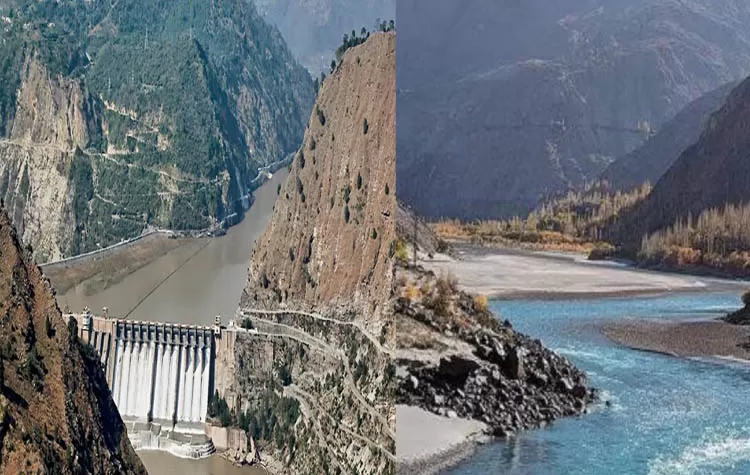
In a surprise diplomatic move that has created ripples in South Asia, India suspended its accession under the Indus Waters Treaty amid increased tensions after the Pahalgam attack in Jammu and Kashmir. Decades of deference even from times of outright war, the treaty—the one signed in 1960 under World Bank auspices—has for decades been a celebrated symbol of pragmatic cooperation between the two nuclear-armed neighbors. India's move is a stark departure from decades of self-restraint and marks a readjustment of its policy toward Pakistan.
This change is gargantuan uncertainty for Pakistan, a nation whose agriculture, water supply, and energy production heavily rely on the waters covered under the treaty. The sudden policy change in India raises ominous questions regarding water security and stability within the nation, which lead towards intricate implications that can emerge in the coming months and years.
Strategic Shift After Pahalgam Attack
India's move to suspend the Indus Waters Treaty came after the Pahalgam, Jammu and Kashmir, terrorist attack that resulted in the deaths of individuals. As a measure against a traditional military retaliation, Pakistan mobilized troops along the border. Rather than using military force, India used an out-of-the-box solution—suspending a critical resource. Islamabad was taken aback by the suspension since even during the days of previous wars, the treaty had not been shaken. The surprise policy action is India's strategic realignment towards employing economic and environmental tools to apply pressure.
The Indus Waters Treaty has, for more than six decades, allowed waters of six rivers common to the two nations to be distributed. While India controlled the eastern rivers—Ravi, Beas, and Sutlej—Pakistan relied on the western rivers—Indus, Jhelum, and Chenab. These waters satisfy the drinking, agrarian, and electricity requirements of Pakistan's millions. India had adhered to the treaty in the past under previous diplomacy as well as military pressure, so this recent suspension is a rare milestone for bilateral ties.
Water Dependency and Agricultural Impact
The water infrastructure of Pakistan is in dire need to rely on Indus Waters Treaty-streamed rivers. More than 80 percent of Pakistan's national agri-products are reliant on river-based irrigation water. Crop land of over 16 million hectares comes under this regime, and any interference with flow would hit hard on food production and farm incomes. Punjab province, which is Pakistan's political and military hub, is especially at risk. Agriculture accounts for roughly 23 percent of Pakistan's GDP, and most of the rural population derives its income directly from it.
Pakistan's cities are also vulnerable. Karachi, Lahore, and Multan obtain a large percentage of their potable water from the river basins. The Indus Basin provides 154.3 million acre-feet annually, which is the basis for drinking and agricultural water consumption. Any reduction will speed up water scarcity in a country already facing inefficient irrigation systems, low ground levels, and growing saltwater infiltration into seashore aquifers.
Energy Sector Vulnerabilities
Pakistan's generation mechanism is also in danger due to the impacts of suspension of the treaty. Mangla and Tarbela dams, built on the Jhelum and Indus rivers respectively, are integral to Pakistan's power generation. Combined, the hydroelectric power plants contribute nearly 24 percent of Pakistan's overall electric production. Any curtailment in river flow or India's control over these waters would cause tremendous shortages of electricity, particularly during peak demands.
In addition, Pakistan's water storage remains too limited. Combined, the Mangla and Tarbela reservoir storage capacity is only 14.4 MAF—10 percent of the nation's total annual water allocation. The nation stands miserably vulnerable to upstream activities and yearly fluctuations. If India continues down the path of new reservoir development or diversion schemes, the ultimate effect on Pakistan's water and power supply could be disastrous.
Legal Issues and International Recourse
Even though there are no express termination clauses in the agreement, India can rely on Article 62 of the Vienna Convention on the Law of Treaties, under which it is permitted to withdraw on account of essentially changed circumstances. Former Indus Waters Commissioner Pradeep Kumar Saxena has described this provision as a potential legal rationale for the decision. India's change of policy can be interpreted as an attempt to take advantage of its geographical position as the upstream country and re-structure the diplomatic landscape in the region.
Pakistan's initial recourse would most probably be foreign institutions like the World Bank and the United Nations. The process of resolution through these bodies is typically protracted and inconclusive, however. Meanwhile, the nation must contend with a water-insecure situation without either the infrastructure or institutional capacity to alter quickly. Depending on external action can also shortchange Pakistan on leverage in bi-lateral negotiations.
Gradual Consequences and Strategic Flexibility
India's move is not likely to have an immediate impact on Pakistan's water supply. Physical facilities to stop or divert river flow are yet to be set up. Nevertheless, India can start by reducing flow gradually by 5–10 percent, taking advantage of the suspension of the treaty to start new construction work on upper rivers. These would take years to be ready, but when completed, they would give India considerable control over water allocation.
The strategic management of water release—especially during monsoon months—is a strong card in the hands of India. It can relieve flood pressures at home while potentially tightening Pakistan's agriculture cycle. India has become more agile in managing its hydro resources by freeing itself from the limitations of the treaty, further muddying the regional power dynamics. For Pakistan, the incremental nature of these pressures could mean long-term economic and environmental anguish.














